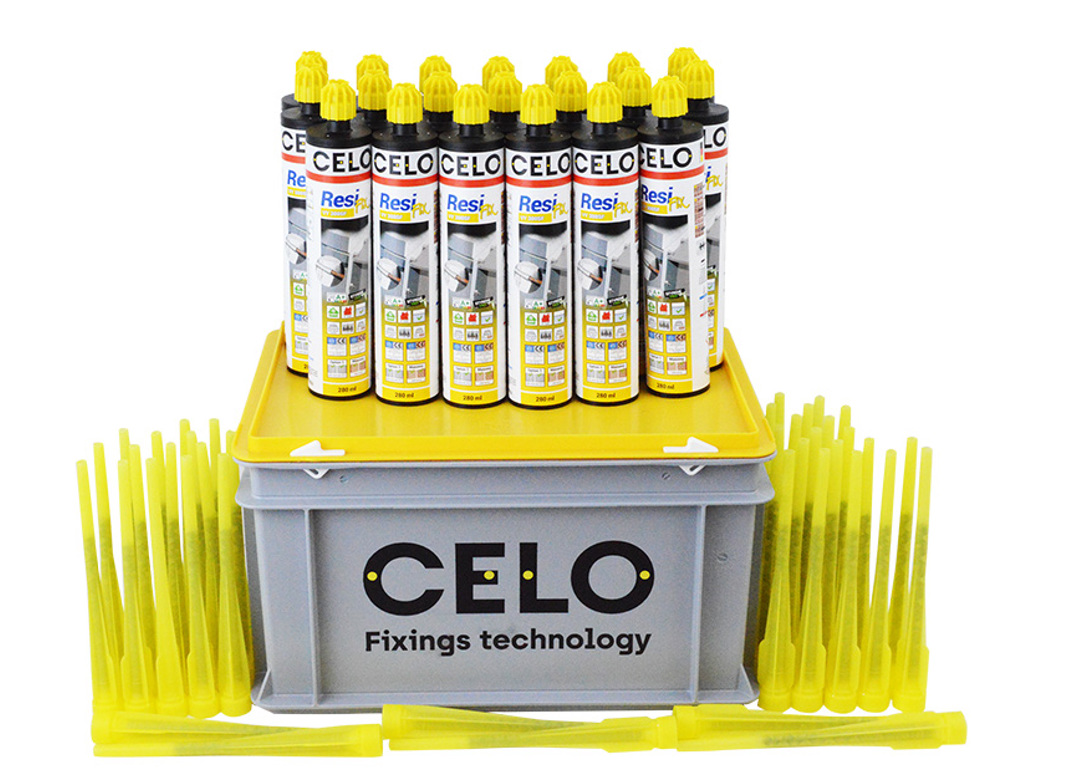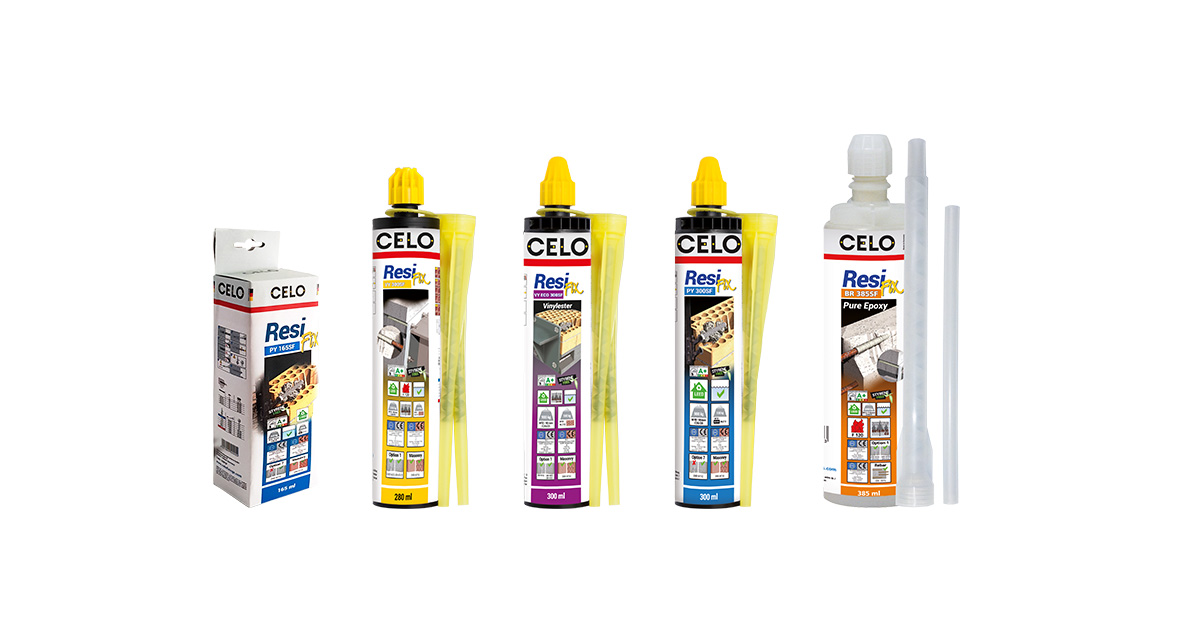
Chemical anchors not only meet amazing requirements and withstand the highest loads, but they help to realise previously unimaginable building projects. However, with heavy-duty construction projects comes great responsibility.
For safety critical applications, the reliability of the fixing is crucial and the usage of a high-quality, safe and extensively tested anchor is a must. Therefore chemical anchors must have an ETA (European Technical Assessment), a widely accepted confirmation of technical suitability of a building product in accordance with the Construction Products Regulation (CPR) in the member states of the EU, which can be achieved by undergoing an extensive testing programme.
To ensure maximum user safety, all CELO resins have multiple ETAs. The ETAs either provide information about the suitability in certain substrates, such as cracked and non-cracked concrete and masonry, or for certain applications, such as rebar connection.
Most of the chemical injection systems from CELO are tested for use in areas with high risk of earthquakes and are suitable for usage under seismic conditions, which widens the possible range of applications for the installer. Premium products such as the ResiFIX VY SF and ResiFIX Pure Epoxy are also fire resistant with an R120 approval.
‘One step ahead’ of metal anchors
In terms of substrates, chemical mortars are ‘one step ahead’ of metal anchors. Not only are they highly effective in solid materials like concrete, solid bricks or aerated concrete – with high loads up to 1,350kg and more depending on the anchor rod and type of concrete – their initial flexible consistency enables the chemical mortar, together with the perforated sleeve, to adapt to any stone geometry and thus reach high loads in any kind of hollow brick up to circa. 140kg per fixing point – depending on the brick type. Wet or waterfilled drill holes are no problem for all the CELO ResiFIX resins and even overhead installations are possible.
The wide assortment of chemical mortars from CELO applies to heavy-duty applications like steel constructions, cantilevers, façade constructions, distance mountings, stairways, pipe installations, etc. Answering specific needs, some of its products go beyond that and offer suitability for contact with drinking water or extreme climate conditions. For example, the vinylester ResiFIX VYSF Cool is the product of choice when temperatures go down to -20°C.
Harmless to health
The chemical mortars from CELO are not harmful to health as proven by the following tests and certificates. All CELO resins have styrene-free formulations, which means there is only marginal to medium odour during the installation. The ResiFIX mortars from CELO rank in class A+ of the French VOC label for lowest emissions of critical substances in closed spaces and are harmless to health after curing. The chemical mortars are also tested by the sustainability certification LEED for environmentally friendly, low pollutant, low emission and sustainable construction products.


Having spent a decade in the fastener industry experiencing every facet – from steel mills, fastener manufacturers, wholesalers, distributors, as well as machinery builders and plating + coating companies, Claire has developed an in-depth knowledge of all things fasteners.
Alongside visiting numerous companies, exhibitions and conferences around the world, Claire has also interviewed high profile figures – focusing on key topics impacting the sector and making sure readers stay up to date with the latest developments within the industry.
Don't have an account? Sign Up
Signing up to Fastener + Fixing Magazine enables you to manage your account details.